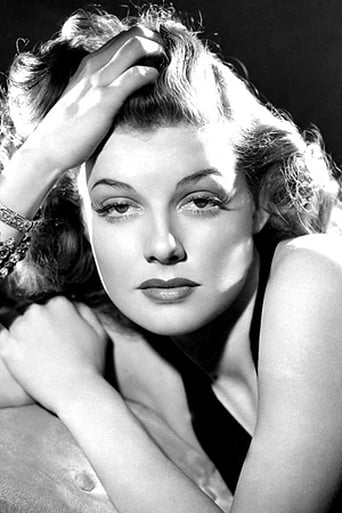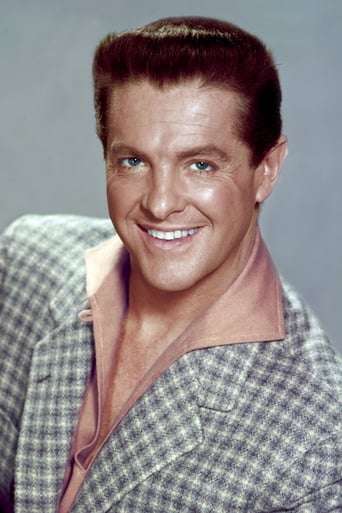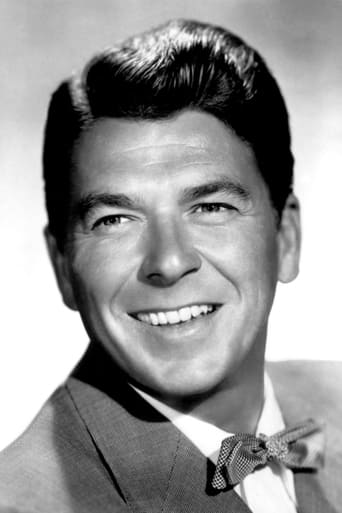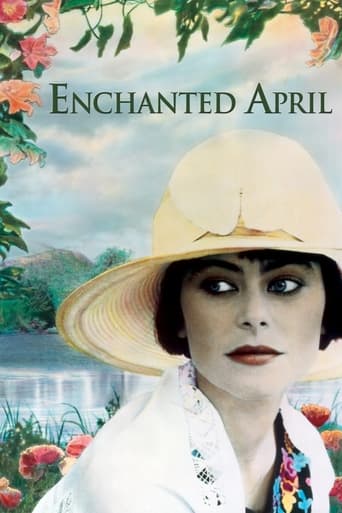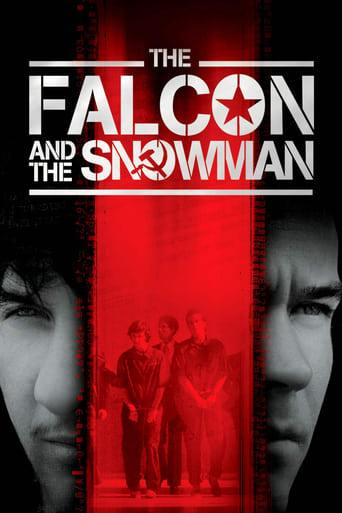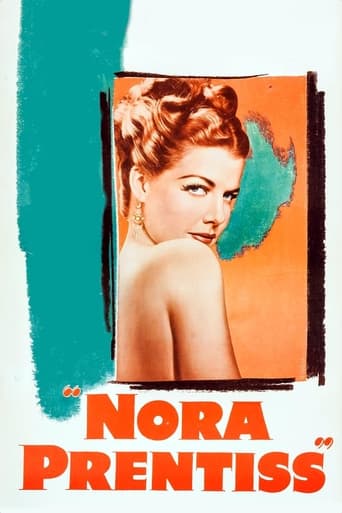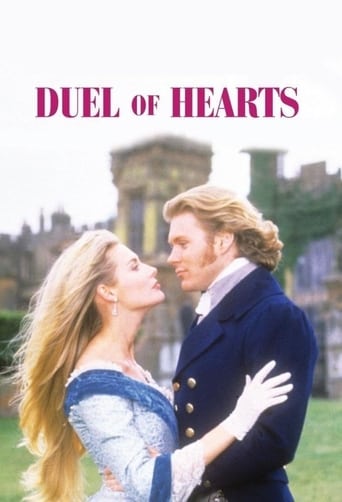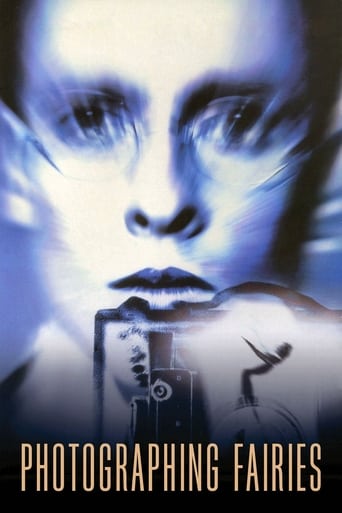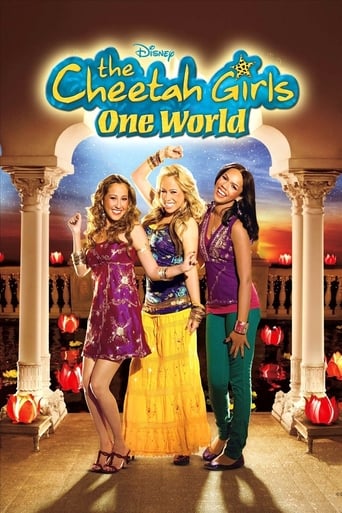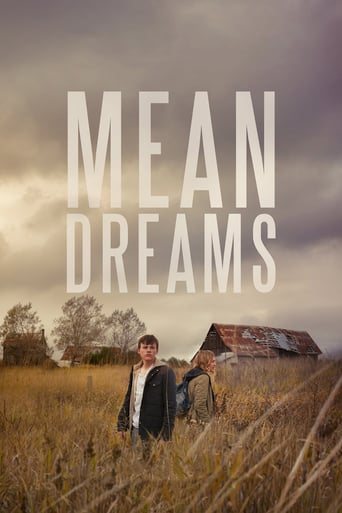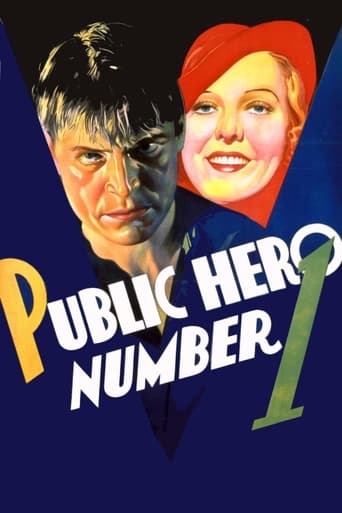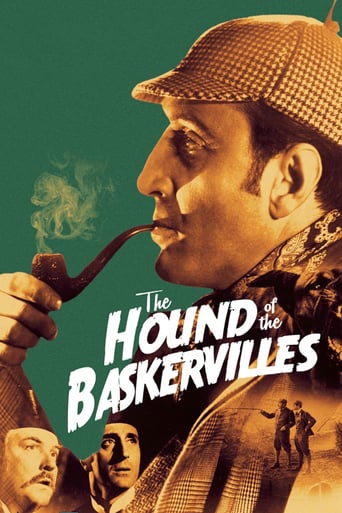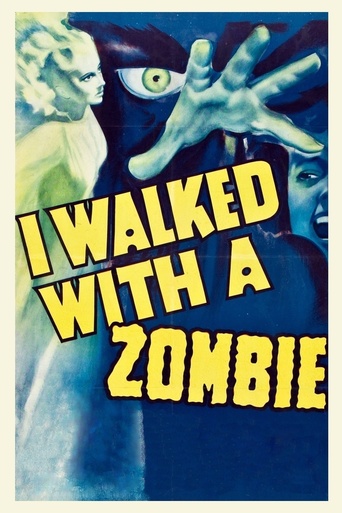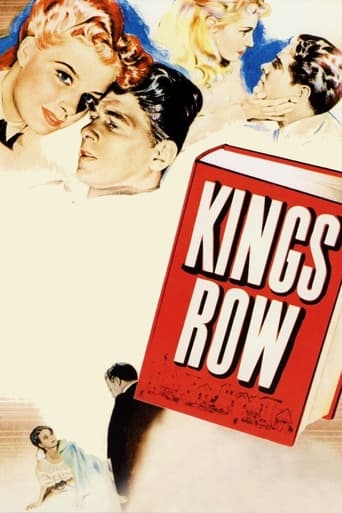
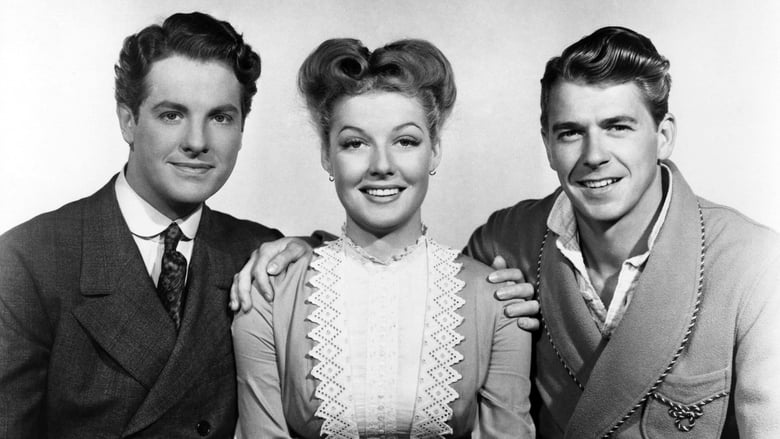
Kings Row (1942)
Five young adults in a small American town face the revelations of secrets that threaten to ruin their hopes and dreams.
Watch Trailer
Cast


Similar titles
Reviews
Ronald Reagan mentions how lonely he is to Ann Sheridan, which represents a few of the characters who are also lonely. The story itself is not that interesting, but it has the potential to be interesting. I haven't read the novel, but I think there is something lost in the adaptation from the novel to the screen. It's probably trying to do too many things rather than focusing on one thing.I like the ensemble cast of Claude Rains (who dies off pretty quickly), Charles Coburn and Judith Anderson. Reagan plays a more interesting character than Robert Cummings, but you get the sense that you are on a journey with these characters rather than engaging in an absorbing plot.
Amazing soap opera. One of the best of its kind. I'm not a big fan of soaps in general and I rarely rate them high. It's a testament to how good this is that I give it such a high score. The story is long as it traces the lives of two men (Robert Cummings, Ronald Reagan) in the town of Kings Row from childhood through trials and tribulations as adults. Cummings is the respectable, dependable one and Reagan the wild, reckless one. The film is probably best remembered today as Reagan's finest performance (and it is). Cummings is good, as well. Better than he's given credit for since his character is more steadfast and therefore doesn't get the meatier scenes that Reagan does. He does get some, though, and excels at them. Top-billed Ann Sheridan, lovely as always, doesn't appear until halfway. She plays Ronnie's love interest and is excellent in an emotional role. Her chemistry with Reagan was always good and never better than here. The supporting cast is made up of distinguished veteran actors like Claude Rains, Maria Ouspenskaya, Harry Davenport, Judith Anderson, and Charles Coburn in a surprisingly dark role. The only slight casting fault the film has to speak of is Betty Field. She plays her character with the usual overwrought excesses so many actors then and now bring to roles of mentally disturbed people. It's not a terrible performance. It's just so much more melodramatic than the rest of the cast that it makes her stick out. Fine cast with a juicy story and superb direction from Sam Wood. Oh, and that Erich Wolfgang Korngold score is wonderful. This is definitely a classic film you have to see.
This movie shocked me. I have been studying film noir for a while, and they all touch upon madness to one degree or another. However, hardly any film noir of the 1940's and 1950's reached this far down into madness. I think until David Lynch's 1986's "Blue Velvet" there really wasn't such a nightmarish vision of small town America in mainstream film.Unlike many of the reviewers here, I thought Robert Cummings performance was terrific. He was able to suggest a homosexual relationship between himself and Drake (Ronald Reagan) without making it too explicit and he also shows a genuine deep love for his childhood girlfriend Cassie. Cummings shows intelligence and passion and real anguish when gets hit with a sudden tragedy.Betty Fields as Cassie was amazing. She captured insanity about as well as any actress I have ever seen. Her abrupt exit from the story is as disconcerting as Janet Leigh's abrupt exit from "Psycho".The biggest disappointment was Ronald Reagan. His character of Drake is an idiot and Reagan can certainly be credited with playing him as an idiot very well. He is totally bland and forgettable through the first half of the movie.He has a catastrophic accident that makes him a cripple and his reaction is bizarre. It is hard to believe that anyone would say "Where's the rest of me?" under such circumstances. He says the line almost as if saying, "where's my underwear?" or "where's my socks." Reagan's character doesn't really change after his catastrophic accident, he does go from being cheerful to depressed for a while, but his depression seems as much related to his losing his wealth, and his homosexual lover Parrish leaving him, as to his becoming handicapped. When he regains his wealth through a real estate scheme, he more or less regains his cheerful demeanor.We're supposed to like Reagan because although he is wealthy, he is even willing to marry Randy (Ann Sheridan), a girl from a working class family. He does not believe in class distinctions. He even shows respect for the girl's parents. He's a rich young romantic and when he loses his wealth and becomes handicapped, we do feel sorry for him, as we would for anybody in those circumstances. Yet his range of emotions remains limited and rich or broke, athletic or crippled, he remains a simpleton.Ann Sheridan is charming playing the faithful Randy, although one never believes she really loves Reagan or would marry him after his accident. She's not really given much chance to show or explain her love.. Its not a showy part for her. Betty Fields and Nancy Coleman as girls driven insane by their doctor fathers really had the meatier roles in this one.This film is the flip side of "Our Town" and shows the demented inner side of an American Town. I like to think that Grover's Corners was more like life for most Americans in the late 1800's and early 1900's than Kings Row. If it had not been for the extreme Catholic/religious censorship in Hollywood, we probably would have seen more Kings Row type towns. The mean townsfolk of Cape Briton, Nova Scotia we see in "Johnny Belinda" are sweethearts compared to the townspeople of Kings Row.There was a ban on showing Ronald Reagan films during the presidential campaigns that Reagan participated in. This was lucky for Reagan, I'm sure if this film had been shown anybody who watched it would have voted against him.
Two boyhood pals from the 1890s grow into young adults with tumultuous lives: Robert Cummings is the studious kid who moves away from small town America to study psychiatry in Vienna (!), while Ronald Reagan loses all his money in a bank swindle and has to find work on the opposite side of the tracks. Intelligent, if melodramatic, adaptation of Henry Bellamann's novel isn't particularly well-directed (nor is it sharply edited, as the scenes and transitions could use more verve and snap); however, it does have Reagan at the peak of his acting charms, and his strong performance really carries this a long way. Cummings, whose make-up job causes him to resemble an actor from the silent era, is less interesting, and the supporting performances are variable, but film is still quite absorbing and entertaining. Excellent music score by Erich Korngold, handsome cinematography by James Wong Howe. Though a Best Picture nominee for 1942, the movie was originally set for release the year before, with Warner Bros. getting cold feet and putting it on ice. Once they did release it, the film failed to find much of an audience. **1/2 from ****


